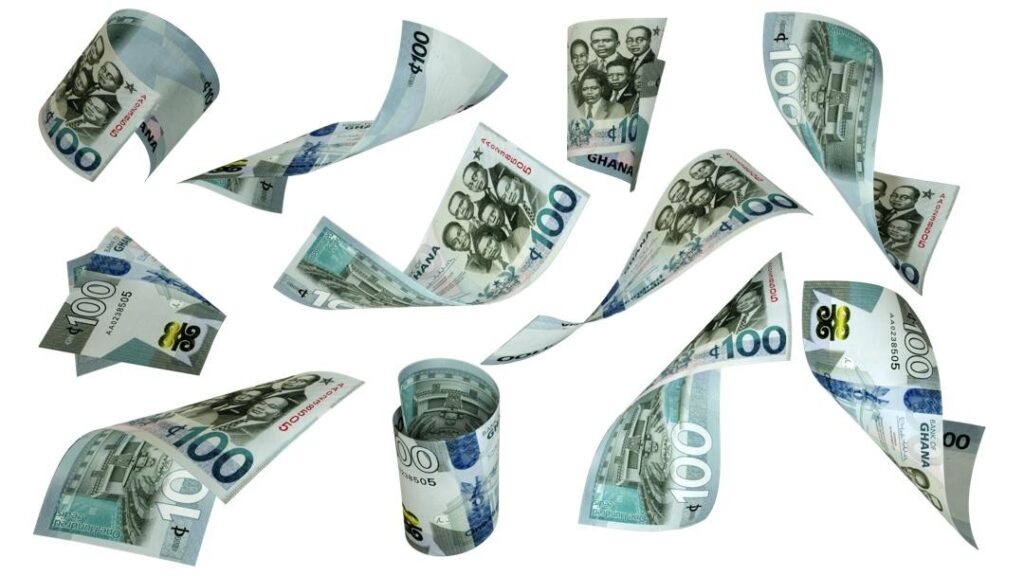Cedi Falls by 5.3% Against the Dollar in Q1 2025 – Bank of Ghana

The Ghana cedi experienced a notable decline of 5.3% against the US dollar in the first quarter of 2025, according to the Bank of Ghana (BoG). By the end of March 2025, the cedi was trading at GH¢15.53 to the US dollar on the interbank market, reflecting the continued challenges faced by the local currency in the foreign exchange market.
Throughout the first quarter, the cedi faced consistent depreciation against major foreign currencies. In January 2025, it lost 5.3% of its value against the dollar, followed by a 3.9% decline in February 2025. The local currency also experienced significant depreciation against other global currencies. Against the euro, the cedi depreciated by 9.2%, reaching a rate of GH¢16.75 per euro in the interbank market. Similarly, the cedi weakened by 8.2% against the British pound, which traded at GH¢20.03 per pound.
These depreciations have raised concerns about the stability of the local currency and the broader economic outlook. The performance of the cedi has been closely monitored by financial analysts, as it impacts both domestic inflation and the cost of imports. The continuous decline in value against the US dollar, in particular, has highlighted the need for interventions to stabilize the currency and restore investor confidence.
Despite the negative trend in the first quarter, the cedi showed some resilience in the retail market. Last week, the local currency managed to appreciate by 0.31% against the US dollar on a week-on-week basis, trading at GH¢15.90 per dollar. This improvement brought the year-to-date depreciation down to 2.36%. While the gain is modest, it signals that the cedi may be stabilizing after its earlier losses, although uncertainties remain.
The Bank of Ghana has been closely monitoring these developments, with interventions aimed at mitigating the depreciation of the cedi. These efforts include various measures to support the local currency, such as selling foreign exchange reserves to ease pressure on the cedi in the foreign exchange market. However, the overall effectiveness of these measures depends on various factors, including external economic conditions and the country’s fiscal management.
In the coming weeks, a team from the International Monetary Fund (IMF) is expected to visit Ghana to conduct the fourth review of the country’s US$3.0 billion Economic Credit Facility programme. This review will focus on assessing Ghana’s performance under the IMF-backed programme, as well as examining the 2025 national budget. The outcome of the IMF review is expected to play a significant role in the country’s economic trajectory in the coming months.
The IMF team’s assessment will also take into account the Ghanaian government’s efforts to implement fiscal discipline and structural reforms to address the country’s macroeconomic challenges. A positive review by the IMF could pave the way for the disbursement of the next tranche of funds under the Economic Credit Facility programme. These funds are crucial in providing much-needed support to the country’s foreign exchange reserves and boosting the Bank of Ghana’s ability to intervene in the market, potentially aiding in the stabilization of the cedi.
Market analysts believe that a successful review could create a more favorable environment for the cedi, as it would help restore investor confidence and improve the overall economic outlook. Furthermore, it could lead to increased foreign investment, which would bolster the local currency and reduce volatility in the foreign exchange market.
In conclusion, the Ghana cedi’s performance in the first quarter of 2025 has highlighted the ongoing challenges the country faces in maintaining currency stability. However, the small gains in the retail market and the anticipated IMF review offer some hope for a possible recovery. The coming months will be crucial in determining the cedi’s trajectory, with key factors such as IMF support and government interventions playing a pivotal role in shaping its future performance.







